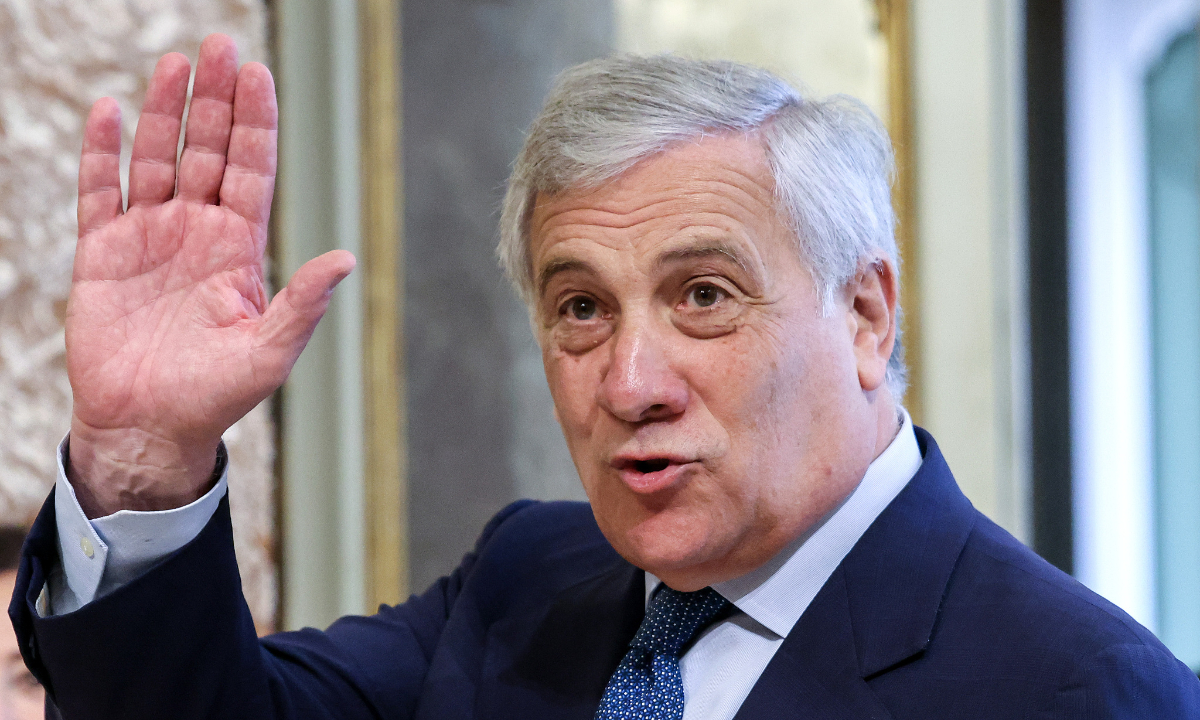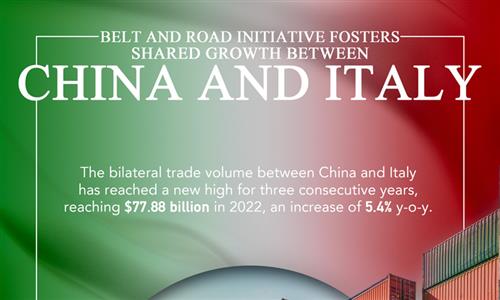Italy FM’s upcoming China visit shows willingness to cooperate despite noise discrediting BRI: expert

Italian Vice-President of Council of Ministers, Foreign Minister Antonio Tajani. Photo:VCG
Italian Vice-President of Council of Ministers, Foreign Minister Antonio Tajani's upcoming visit to China shows that Italy hopes to continue to benefit from economic and trade cooperation with China despite continued Western hype that Italy is hesitant to renew a Belt and Road cooperation document, a Chinese expert said.
The Belt and Road Initiative (BRI) is a long-term cooperation plan that will deliver extensive opportunities to the Italian economy. It's critical for the Italian side to meet China at a balanced point in seeking economic cooperation, rather than just maximizing its own interests, the expert noted.
At the invitation of Member of the Political Bureau of the CPC Central Committee and Minister of Foreign Affairs Wang Yi, Antonio Tajani will pay an official visit to China from September 3 to 5. During the visit, the two foreign ministers will attend the 11th Joint Meeting of the China-Italy Government Committee, Foreign Ministry spokesperson Wang Wenbin announced on Friday.
Italy is considering declining to renew the Belt and Road cooperation agreement with China, and the visiting Italian foreign minister may discuss the issue with China, Western media outlets reported on Friday.
In March 2019, China and Italy signed the memorandum of understanding (MoU) to jointly advance the construction of the Belt and Road.
Antonio Tajani's visit to China comes at a critical juncture as hostile voices attempt to disrupt mutual economic and trade cooperation between the two sides. The future of bilateral economic ties will to some extent depend on the series of interactions between the two sides starting with this visit, Cui Hongjian, director of the Department of European Studies at the China Institute of International Studies, told the Global Times on Saturday.
While media reports said there is still no unified internal position within Italy on the renewal of the Belt and Road cooperation document with China, Antonio Tajani's visit shows that Italy does not want the mutual-beneficial cooperation to be impacted, Cui said.
Over the past five years, bilateral trade has increased by 42 percent, reaching nearly $80 billion last year, China's Foreign Ministry announced in August.
China-Italy trade growth in the past few years has been faster than the growth of China-EU trade over the same period, Cui said, noting that the Italian trade deficit problem that some western politicians used to discredit BRI cooperation is just a misleading excuse.
The agreement reached between China and Italy under the framework of the BRI covers investment, infrastructure, technology, trade and other aspects, and will deliver significant and ongoing opportunities for Italy's economy, according to Cui.
In the context of the gloomy global economic outlook, BRI cooperation provides supports to stabilize the Italian economy. If Italy is blown off course by anti-China voice and chooses to regretfully withdraw from Belt and Road cooperation, the country stands to lose vast opportunities, Cui said.
Global Times



